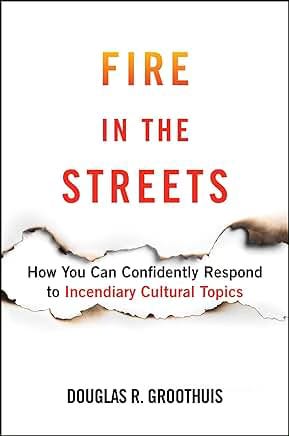Book review: Three more books to consider
Earlier this year, I wrote Three books you'll want to read this year. I’d love to know if you have added one of those to your reading list or read one already! In this post, I’ll review three books briefly. Two I recommend, and one I think you can pass on.
Strategic Disciple Making: A Practical Tool for Successful Ministry by Aubrey Malphurs
Two of the most formative books for me early in my pastoral ministry were Aubrey Malphurs’ Planting Growing Churches for the 21st Century: A Comprehensive Guide for New Churches and Those Desiring Renewal and Pouring New Wine into Old Wineskins: How to Change a Church Without Destroying It.
I picked up Strategic Disciplemaking, eager to be encouraged again. (I hadn’t read much Malphurs since the early 2000s). It’s good. It’s practical. And yet… it may be too practical.
He presents his understanding of biblical discipleship and lays the scriptural foundation for making disciples in the first few chapters. He urges us to quit thinking of “disciples” or “discipleship” as being only for some group of spiritual elite in your local church. Every Christian is a disciple, he points out. Everyone should pursue growth in their relationship with Christ.
“[There are] ..too few disciples taking responsibility for their own spiritual growth and development. Each Christian and member of a church should have a plan for personal spiritual development.”1
He proceeds in the rest of the book to offer practical suggestions for creating a disciple-making pathway in the local church. He delves into budgets and even offers numbers and metrics for when staff hires should be made. At times the book seems to drift off course and be more of a 1980s “church growth” book than one focused on strategic disciple-making. I wholeheartedly agree that:
“Each church needs to develop its own unique process of disciple-making and communicate this to its people. Everyone in church must know and understand the church’s process for making disciples.”2
However, I'm conflicted about this book. It has extremely practical advice in it. In places though, what Malphurs claims as biblical is simply... not. He gives man-centered, business-oriented advice that is steeped in pragmatism. And yet, in other places, his advice is so down-to-earth as to be instantly helpful and applicable to any leader seeking to implement strategies for elevating discipleship in his church.
He quotes/references some leaders that I've lost some respect for over the years (granted the book was printed in the hayday of these church growth gurus). Mark Driscoll, Bill Hybels and Rick Warren are referenced as authoritative and held up as being copy-able.
In his chapter on "How to Prepare a Strategic Budget," he quotes Hybels:
"Be as theological as you want to be, but the church will never reach her full redemptive principle until a river of financial resources starts flowing in her direction."
Yeah. Digest that.
Heresy anyone? I mean, I naively thought that Jesus was the Head of the Church and that He is the one who redeems, calls and equips His people through His indwelling Spirit. But I digress... I don't want to get theological. (I thought it was just being orthodox.)
And if you thought that perhaps Malphurs doesn't agree with the quote, think again. He doubled down on it on the next page by adding the rest of the quote, as if that makes it even better.
"Be as theological as you want to be, but the church will never reach her full redemptive principle until a river of financial resources starts flowing in her direction. And like it or not, it is the leader's job to create that river and to manage it wisely. The sooner the leader realizes that the better."
I don't know if the first or second part of the quote is worse.
Sorry, Aubrey. You've got some good stuff in here, but... what in the world?
As a caveat, if you're willing to spit out the seeds, you'll find some practical leadership material in each chapter. You'll be helped along by some good biblical principles as well. Just be ready to read with discernment and to pick up your jaw when it drops in incredulity on occasion.
Fire in the Streets: How You Can Confidently Respond to Incendiary Cultural Topics by Douglas Groothius
I began this book without any expectations. I’d seen someone on Twitter recommend it, and its table of contents looked interesting online, so I bought it. I’m thankful I did.
In digestible and relatable writing, Groothius deftly addresses some of the most controversial cultural topics and offers biblical perspective and historical context. Critical race theory, socialism, capitalism, free speech, and other topics are explained and contrasted in a way that even those who get a bit cross-eyed hearing such issues debated will understand and be equipped to respond in an intelligent way.
The author doesn’t spoon-feed you. He invites you into each topic with context and then addresses their shortfalls or benefits.
Because Marxism is the underlying ideology to CRT and socialism, he spends the first chapter on “Fire in the Mind of Karl Marx and His Followers.”
“Marx and [Frederick] Engels were experts at describing the misery of the poor in the aftermath of the Industrial Revolution and at whipping up outrage over the fate of the impoverished and against the oppressing capitalists. They turned some good phrases in justifying their bad philosophy… None of Marx’s key ideas were testable.”
Most people are unaware that Black Lives Matter and other “recent” cultural movements are squarely founded upon Marxism. What they don’t want you to know is the death toll from countries/leaders that have embraced it.
“The death toll that Marxist regimes in the 20th century inflicted on their own people (in Russia, China, Cambodia, North Korea, Cuba, etc.) was more than 100 million.”
Marx was no one to emulate.
“He was a study in debauchery… no epitome of virtue. Added to that, he was a racist (using the N-bomb often) and an antisemite (although he was ethnically Jewish)… His philosophy did change the world, but for the worse – far worse than any other philosophy in history.”
Groothius exposes the impact on liberal economic policies on the poor and minorities in the U.S. The cold reality is that where the government has attempted to intervene and create equity, it has instead created dependence and dysfunction.
“If we wanted to be serious about evidence, we might compare where blacks stood 100 years after the end of slavery with where they stood after 30 years of the liberal welfare state… most black children being raised in two-parent families in 1960. But 30 years after the liberal welfare state found the great majority of black children being raised by a single parent.”
Citing Thomas Sowell, Barack Obama, and Thomas Chatterton Williams while also refuting Derrick Bell is a hefty demonstration of the resources and thinkers that Groothius is able to dial up. The book is amply footnoted and never comes across as being a rant or screed.
In Section 4 of the book, he offers “A Better Fire” (having identified all the different movements and philosophies as “fires” in the street). The two concluding chapters “A Christian Framework” and “Fanning Holy Flames” are worth buying the entire book for. However, don’t miss out on the material beforehand. It’s a necessary prequel that makes you thirsty for the positive and hopeful suggestions and principles he offers in the final section.
Bad Therapy: Why the Kids Aren't Growing Up by Abigail Shrier
Holy cow. This book is a must-read. It offers a disconcerting and head-nodding assessment of our therapeutic culture that has inhibited the development of our kids. Shrier is no stranger to controversy. She tackles cultural issues head on. Shrier does not have a biblical worldview, so don’t expect to find conservative biblical principles in her books.
(I reviewed her book Irreversible Damage: The Transgender Craze Seducing Our Daughters which profoundly addressed and exposed the modern transgender movement as being a social contagion in adolescent girls here.)
I found myself seeing scriptural truths and tie-ins to her findings and conclusions throughout. If Shrier continues along the pathway of discovery in future research, she may realize that the worldview that she exposes (and that she names as evil) is perfectly countered and explained by the Christian worldview.
Shrier addresses the rush to “label” kids with mental health illnesses. She presents findings from acknowledged thought leaders in counseling, psychology and psychiatry to buttress her claims that the therapeutic industry is a profit-driven enterprise that must attract and keep its customers. She points out ethical breaches, the overt replacement of parental authority and the lack of admission of harmful impacts of poor therapy. She takes aim at social-emotional learning (SEL) in schools as well as the growing evidence that simply removing smartphones from schools results in more focused students and higher productivity/learning.
The book becomes shrill at points, however. While there’s much to agree with and continue to digest, I found myself at times wondering if Shrier was presenting a strawman argument. I mean, if it’s that bad out there, society is on the verge of collapse. Surely, we’d be seeing daily evidences of an over-addicted, mentally unwell culture, right?
One reviewer added:
Shrier’s book is a must-read for neurotic urban parents who micromanage their children’s lives and rush them to the doctor at the slightest worry.3
Another reviewer summarized the book:
“Here lies the most powerful point... Kids require adversity to grow. They’re made that way. Shrier argues that the widespread talk therapy provided to kids raised by gentle parents carries profound risk of iatrogenesis—practitioners harming rather than healing their patients… bad therapy teaches kids to navel-gaze, encourages them to ruminate, affirms and accommodates their worries, and dispenses diagnoses liberally. Finally, bad therapy shepherds kids not toward healthy life patterns of discipline, challenge, and friendship but toward unneeded psychotropics. Kids get dulled with meds at any first glimmer of trouble… Bad therapy’s result? ‘Emotional hypochondriacs’ who think mainly about themselves, the most depressing state of all.”4
This book is another captivating foray into a massive cultural issue that requires more thought and good faith efforts at reform. It’s an exposé of a mental health industry that needs more accountability. Parents and youth leaders, pastors and teachers, school administrators and therapists need to read this together and then attempt to talk about it. They may need therapy after such an effort.
Get it. Read it. Tell me what you think.
Strategic Disciple Making: A Practical Tool for Successful Ministry, by Aubrey Malphurs (Baker Books: 2009), p41.
Ibid, p42.
Abigail Shrier’s Bad Therapy by Alex Graham (Counter Currents: May 30, 2024)
Therapy that discourages, by Chelsea Boes (World Magazine: April 4, 2024)





THe last two books, you reviewed are a yes and amen to read,, we need to read good biblical theological books on tough topics in the world, and stop babying and pampering children and let them experience trials and tough things in life so they learn from them and toughen up!!! So as young adults and adults they can make good biblically led decisions, and stop running home to mommy and daddy!!!!! I know, tough words, but seriously!!!
My first reaction to the book written by Aubrey was What in the world is a woman doing writing a book to men about discipleship and theology??????????? Then I read the quote from her book and nearly fell on the floor!!!! Yikes,,, talk about doctrinal and theological mush, and misleading. EEEKKKK< . thanks for the honest review... much appreciated.